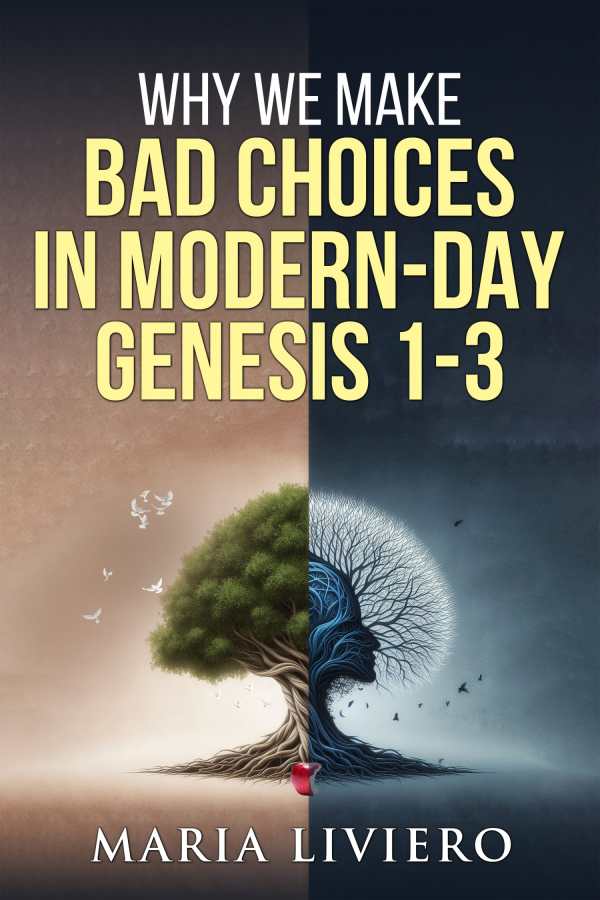Why We Make Bad Choices In Modern-Day Genesis 1-3
Why We Make Bad Choices is an innovative parable regarding evil in the world; it draws on psychology and the Bible.
In Maria Liviero’s innovative allegorical text Why We Make Bad Choices, classical Jungian psychology is used to argue that the Genesis account resides within the collective unconscious of humanity.
The book’s insights come via a story about a contemporary version of Eve who struggles to live in New York. Dealing with addiction and perfectionism, Eve undergoes therapy to find peace and understanding. In the course of her therapy sessions, she enters a parallel universe where she encounters Soul, who provides her with deeper awareness of the human condition. She comes face to face with the darkness inside God and all of humanity, but also has new realizations and finds the grace to understand the hidden fullness of the divine.
Eve also discusses Christian theological concepts with Soul, including the true nature of humanity, the Trinity, and the problems of guilt and shame. Such spiritual work is supported by comments from the Church Fathers and quotations from contemporary psychological texts on shame, guilt, and other topics. And in tandem with Eve’s transformation comes a creative retelling of the first three chapters of Genesis, covering creation, the formation of Adam, and humanity’s fall from grace and expulsion from Eden.
Close readings of the Bible complement most of the book’s suggestions, and the underlying Hebrew language is investigated throughout for additional context. The text itself is written in a parabolic style, with Eve’s therapeutic challenges leading to various spiritual experiences with Soul. Indeed, her confrontation of the true nature of God requires undergoing a prototypical dark night of the soul. Still, most of the book consists of extensive conversation between Eve and Soul. They function both as characters in their own right and as symbols, leading to some flattening of their personalities once they go into series of questions and answers.
Occasional references to contemporary problems invigorate the book, as with a discussion on the addictive nature of social media; its inquiries otherwise remain on a more cerebral, less practical level, though. Still, there are useful summaries at the beginning and end of each chapter that clarify the more challenging points—as with a quick rundown of how God is made up of opposites. Ample space is provided for individual reflection.
Why We Make Bad Choices is an innovative parable regarding evil in the world; it draws on psychology and the Bible.
Reviewed by
Jeremiah Rood
Disclosure: This article is not an endorsement, but a review. The publisher of this book provided free copies of the book and paid a small fee to have their book reviewed by a professional reviewer. Foreword Reviews and Clarion Reviews make no guarantee that the publisher will receive a positive review. Foreword Magazine, Inc. is disclosing this in accordance with the Federal Trade Commission’s 16 CFR, Part 255.

